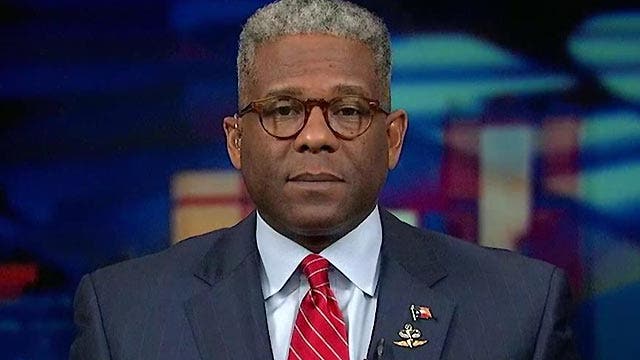Why reveal battle plan for ISIS and world to see?
Obama administration slammed for publicly outlining its strategy to take back Mosul from ISIS and potentially endangering troops
This is a rush transcript from "On the Record," February 20, 2015. This copy may not be in its final form and may be updated.
KIMBERLY GUILFOYLE, 'ON THE RECORD' GUEST HOST: Military veteran and former Congressman Allen West joins us.
Colonel, so did the U.S. reveal too much details about this plan to retake Mosul?
COL. ALLEN WEST, FORMER CONGRESSMAN AND VETERAN: Well, absolutely. It's a pleasure to be with you, Kimberly. When you look at the history of military warfare, think about Operation Overload and D-Day and the lengths we went to for a deception plan. I recall in Operation Desert Shield, Desert Storm, the deception plan we had that made Saddam Hussein and the Iraqi army focus offshore of Kuwait city while we were deep in the desert. Only -- I have seen in the Vietnam War when the Viet Cong surprised during the Tet Offensive, so why would we tip our hand and say we're going to come sometime after the open enrollment of Obamacare, maybe right after tax season, but definitely before Ramadan. We even disclose the size and type and composition of the forces that are going to be used. We have totally lost the key element of surprise in divulging all this information.
GUILFOYLE: How do we rationalize this? What is the explanation? If you didn't know better you'd think someone was playing for the other team by handing over our game plan on Super Bowl day.
WEST: Well, there are two things. Maybe the Obama administration is using this as some type of deception for a grander plan or strategy, which I really doubt. So I really believe that this defaults to a political decision by an administration that wants people to believe that it is doing something, when actually they are not doing anything, and so they are going to divulge this plan. Just the same as we see nothing being done to help the Ukrainians against the onslaught of Russia, we're not seeing any action really be taken by this administration in the Iraqi theater of operations.
GUILFOYLE: From the strategy, engaging in counterterrorism, we are giving away our upper hand by telegraphing constantly and consistently to our enemies and our adversaries our next move. Whether it's withdrawing troops, when we're going to get out, when we're going to deploy, we seem to be very transparent when it comes to military operations, but not other things.
WEST: No, you're absolutely right. It defies all logic that you tell an enemy that you are going to leave on such a date and you're going to declare end of combat operations. This is why I am vehemently against the Congress granting the authorization of military force to President Obama because once again he has come out and said that we're just going to do this for three years. How does he know it's going to take three years? What if it takes six months? Furthermore, he has not laid out a clear strategy. It was a regurgitation of what he said back in August. We saw how horrifically that strategy has failed because ISIS has gained in strength, and we know they now have affiliations in 11 or 12 different countries.
GUILFOYLE: That's the problem. The president wants us to think, yes, he is taking this seriously and asking for this use of military force and authorization, but as you well know, Colonel, the president has everything he needs within his power to be able to act decisively and definitively with respect to ISIS. This just hamstrings, by setting up a specific time frame, three years. Why would you do that, especially with another president coming in, in 2016?
WEST: Well, again, I think that you have a president that is reticent in dealing with this situation. He has been forced into somewhat having to sheepishly admit that his strategy of complete withdrawal in Iraq has failed. He has created a vacuum. He has created an even worse vacuum in Libya as well. They don't know what to do with this. We continue to hear what he is not willing to do, not put grand troops in. He can't even bring himself to say who this enemy is and define them, which violates everything that Sun Tzu presented in "The Art of War," that you must know your enemy and you must know yourself.
GUILFOYLE: If you're in charge of these operations, what would you tell the president the advice should be to win this war against Islamic extremism?
WEST: Well, first of all, you have to diplomatically use force against those states that are sponsoring these non-state belligerents. When you look at Qatar, Turkey, and to some extent Saudi Arabia, you have to cut them diplomatically and cut their financial resources off as well. Most importantly, you have to be able to defeat this theocratic, political, totalitarian ideology by admitting what it is and using your informational resources, your media and other means, by which you defeat that which is fueling it. If you can't bring yourself to admit what it is, as we saw this week after this countering violent extremism summit, then you're not going to be successful in the first place.
GUILFOYLE: You're absolutely right.
Colonel West, it's always a pleasure. Thank you for your time.
WEST: Thank you, Kimberly.





















